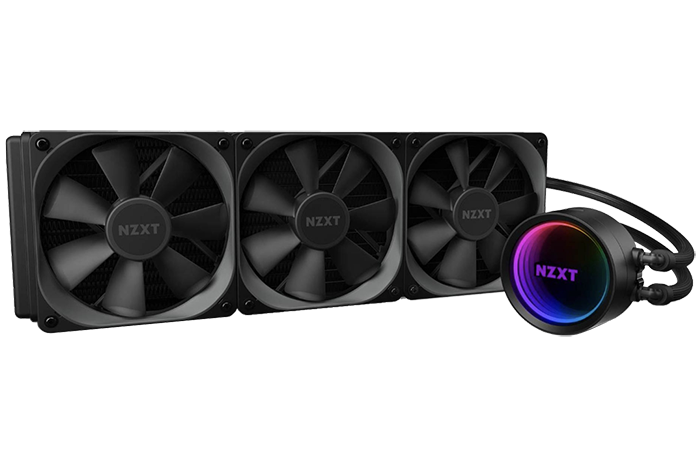

- #Nzxt kraken driver install
- #Nzxt kraken driver driver
- #Nzxt kraken driver full
- #Nzxt kraken driver code
To install a liquidctl release from PyPI, pip should be used:
#Nzxt kraken driver driver
Note that replacing the driver for devices that do not require it will likely cause them to disappear from liquidctl. In most cases Microsoft WinUSB is recommended, which can easily be set up for a device with Zadig:¹ open the application, click Options, List All Devices, then select your device from the dropdown list, and click "Replace Driver". C:\Windows\System32 or C:\Python36).Īdditionally, products that are not Human Interface Devices (HIDs), or that do not use the Microsoft HID Driver, require a libusb-compatible driver, see notes in Supported devices). lib files should be extracted to the system or python installation directory (e.g. The libusb DLLs can be found in libusb/releases (part of the libusb-.7z files) and the appropriate (e.g. Recent versions of Python and libusb are required. The liquidctl team has stopped providing executable files for Windows. The port is also available in DragonFly Ports. Also, you might consider manually changing the permission of the file of the USB device for an individual session with chown, e.g.
#Nzxt kraken driver full
To gain full access as a normal user without doas or sudo, see devd(8).
dependencies: devel/py-docopt, comms/py-hidapi, devel/py-pyusbīy default, root privileges ( doas or sudo) are required to run liquidctl. Liquidctl is maintained in the FreeBSD Ports Collection, and it is available as a pre-built binary package. install udev rules for unprivileged access to devices. # cp liquidctl.8 /usr/local/share/man/man8/ Once all necessary dependencies are installed, pip can be used to install a release from PyPI: libudev developemnt headers (libudev-dev, libudev-devel). LibUSB 1.0 development headers (libusb-1.0-0-dev, libusbx-devel). Python development headers (python3-dev, python3-devel). pytest (optional) (python3-pytest, pytest, python-pytest)įinally, if cython-hidapi will be installed from source or directly from PyPI, then some additional build tools and development headers may also be required:. pip (optional) (python3-pip, python-pip). setuptools Python package (python3-setuptools, python-setuptools). To locally test and manually install, a few more dependencies are needed: smbus Python package (python3-i2c-tools, python3-smbus, i2c-tools).  PyUSB (python3-pyusb, python3-usb, python-pyusb). cython-hidapi (python3-hidapi, python3-hid, python-hidapi). colorlog (python3-colorlog, python-colorlog). pkg_resources Python package (python3-setuptools, python3-pkg-resources, python-setuptools). The following dependencies are required at runtime (common package names are listed in parenthesis):
PyUSB (python3-pyusb, python3-usb, python-pyusb). cython-hidapi (python3-hidapi, python3-hid, python-hidapi). colorlog (python3-colorlog, python-colorlog). pkg_resources Python package (python3-setuptools, python3-pkg-resources, python-setuptools). The following dependencies are required at runtime (common package names are listed in parenthesis): #Nzxt kraken driver code
On others, or when more control is desired, liquidctl can be installed from PyPI or directly from the source code repository. Packages are available for some Linux distributions. Z Requires replacing the device driver on Windows. TypeĬorsair Hydro Platinum H100i, H100i SE, H115iĬorsair iCUE Elite Capellix H100i, H115i, H150i See each guide for specific usage instructions and other pertinent information.
Using liquidctl in other programs and scripts. Initializing and interacting with devices. # liquidctl -match dimm4 set led color fixed "hsl(5, 100, 34)" -unsafe=smbus,vengeance_rgb # liquidctl -match dimm2 set led color fixed "hsl(5, 100, 34)" -unsafe=smbus,vengeance_rgb # liquidctl -match "rtx 2080" set led color fixed 2aff00 -unsafe=smbus # liquidctl -match "smart device" set led color moving-alternating "hsv(30,98,100)" "hsv(30,98,10)" -speed slower # liquidctl -match kraken set sync color fixed 0080ff # liquidctl -match "smart device" set sync speed 50 # liquidctl -match kraken set pump speed 70 # liquidctl status -unsafe=smbus,vengeance_rgb Device #4: NZXT Kraken X (X42, X52, X62 or X72)






 0 kommentar(er)
0 kommentar(er)
